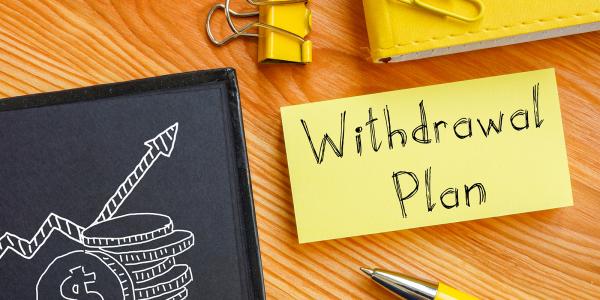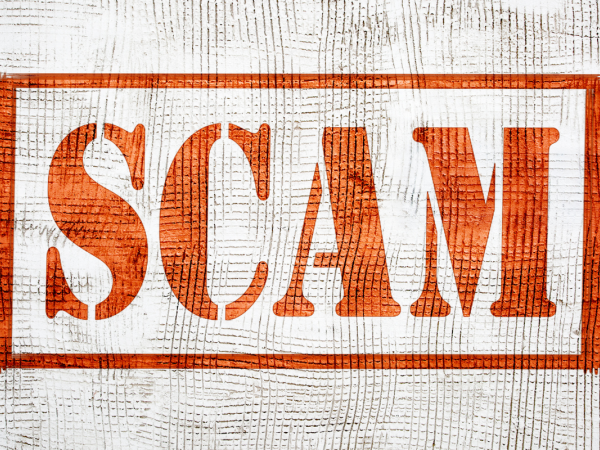Pension withdrawals
On this page we look at when and how you can withdraw money from your pension pot, depending on the type of pension scheme you have paid into.

Content on this page:
Reaching pension age
Generally, the earliest you can take your personal pension is at age 55 (increasing to 57 from 6 April 2028). This is called the normal minimum pension age. It is possible this age may increase further once state pension age increases.
If pension income is drawn before reaching the normal minimum pension age, the payment will be considered an unauthorised payment, and will suffer a tax charge of at least 40%. You can read about unauthorised payments on GOV.UK.
Pension schemes may have their own rules about the age at which you can access your pension – so it might be different than the normal minimum pension age. You will need to check with your pension providers what types of pensions you have, what you can take out, and when you can take them.
Exceptions
Certain professions
Some public sector schemes are excepted from the normal minimum pension age rule, such as those for firefighters, police and the armed forces.
People working in certain professions such as sports people, ballet dancers and deep-sea divers also have special exemptions. For more information on these exceptions, see HMRC’s technical guidance on GOV.UK.
Ill health
If you have to give up your job because of illness, you might be able to get your personal pension before the usual age limit of 55. You must meet the criteria for ill health set by your pension scheme, and in addition, you must meet HMRC’s rules. HMRC's conditions are on GOV.UK.
If you do not meet the conditions and you receive pension income before you reach 55, you will have to pay tax at a rate of at least 40% on the unauthorised payment.
You cannot get your state pension before you reach state pension age.
Serious ill health
If you retire from your job due to serious ill health, you might qualify to take all your pension pot as a lump sum. Again, you must meet certain conditions, which are set out on GOV.UK. The conditions include that you must have evidence from a doctor confirming that you are not expected to live for longer than a year.
Accessing your pension
Once you have reached the age where you are able to access your pension, the way you receive money will depend on the type of pension pot you have and, in some cases, how you decide to draw the income. All of the different ways have different tax considerations. You can read more about them on our page Tax on pension income.
Defined contribution pension
A defined contribution pension pot is also sometimes called a money purchase scheme. Most personal pensions are defined contribution schemes, as are most (but not all) workplace pensions, as discussed in our page Paying into pensions.
When you reach retirement age, you have a choice as to how you access the money in a defined contribution pension pot.
- Annuity
-
An annuity is a way of taking a regular income. You hand over your pension savings to an insurance company (not necessarily the same one you saved up your pension pot with) and in return they promise to pay you an income stream.
You can buy different varieties of annuity to suit your personal or family circumstances, for example, the annuity:
- might be for a short period or paid for life,
- could be paid during just your lifetime, or could continue to be paid to your spouse or partner after you die,
- might die with you, or it could have a guaranteed part that is paid to your beneficiary or beneficiaries after you die. A beneficiary can be anyone you nominate. It does not need to be a family member.
Different types of annuity are explained on the government’s MoneyHelper website.
The choices you make about what you want from your annuity affect how much is paid. Deciding what to do with your pension pot requires careful thought and you should consider taking financial advice.
You might also need to shop around with different providers to get the best value for money. This is also known as using your ‘open market option’.
- Flexible retirement income
-
We give detailed information on when and how tax law allows you to take money out of defined contribution pensions on our page Pensions flexibility.
- Small pensions
-
In some cases, if your pension is small, you might be able to take it as a lump sum under a special set of rules. We explain these rules on our page Small pensions.
- Scheme pension
-
In some instances, you might be offered the opportunity to take a ‘scheme pension’, which is a regular income paid by the pension scheme itself (or arranged by them via an insurance company of the scheme’s choice). You would need to check with your scheme provider whether this is an option.
Defined benefit pensions
‘Defined benefit’ or ‘salary based’ pensions are a specific type of workplace pension, as discussed in our page Workplace pensions.
Defined benefit pensions have stricter rules than defined contribution pensions in terms of what you can do with them on reaching retirement age, so you might not be able to take advantage of the flexible pension rules. Decisions on these pensions need careful thought and advice before taking action.
Although you might be allowed to transfer your fund from a private sector defined benefit scheme to a defined contribution scheme (excluding pensions that are already in payment), you will have to get advice before doing so unless your transfer value is under £30,000.
But if you are a member of a public sector defined benefit scheme, transfers to defined contribution schemes are restricted.
You will need to talk to your pension provider to establish the exact position in relation to the scheme that you are a member of.
If your defined benefit pension is worth only a relatively small amount, you may be able to take it as a lump sum under the trivial commutation rules. We discuss these in our page Small pensions.
Further government information on defined benefit schemes can be found on the MoneyHelper website.
Transferring your pension
Some pension schemes allow you to transfer all or part of your pension pot to another pension scheme. Before making a transfer, you should check that both pension schemes will allow the transfer. As noted above, transfers from defined benefit schemes are subject to more rules than defined contribution schemes.
You should be very wary of pension scams – the government’s MoneyHelper website has information on how to spot a pension scam.
You might want to transfer your pension fund for various reasons. For example, if you have had several different employers, and as a result have a few smaller pension pots, you might want to bring them together. This might make administration and organisation easier for you in the future.
The decision to transfer a pension pot is not one you should take lightly, as you may incur charges and lose some rights.
There is information on transferring your pension on GOV.UK and on the government’s MoneyHelper website.
Pensions on death
You can read about what happens to your pension when you die on our page Pensions and life assurance on death.
More information
As with all important investment decisions, we suggest that you seek independent advice. The government’s MoneyHelper website has information on choosing a financial adviser.



